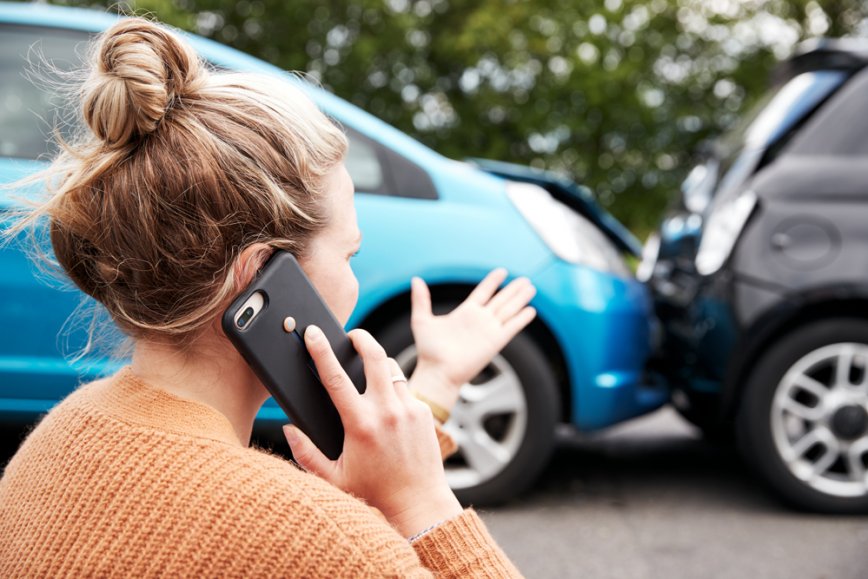
Fear of rate increases discourages reporting
Many people are reluctant to call the police or their insurance company after an automobile accident, primarily for two reasons. First, they’re afraid their insurance premiums will increase. Second, they want to believe they can work things out on their own with the other driver.
Who can blame them for not wanting to increase their insurance rates? But when it comes to number 2, how much do you really know about this other person?
When you don’t need to report a car accident
Let’s just get this out of the way. The only time you do not need to call your insurance company is when the accident happens on your own property, involves no other drivers (so no one else may be at fault) and the damage to your vehicle is minimal or at least of an amount you can afford to cover on your own or lose altogether.
When you must report a car accident
In all other cases, you should call your insurance company (and the police to take a report!)—unless you don’t mind finding yourself down the facing a lawsuit that you have no chance of winning. Reporting the accident to both law enforcement and your insurance company is especially important if anyone involved is injured, damage appears to be significant and the other driver is uncooperative or shady.
Why you should report an accident to your insurance company:
#1 You agreed to it when you purchased your policy.
Virtually every car insurance policy in the United States requires you to report accidents. If you don’t adhere to the policy terms, you could face hefty penalties, and your insurance company may have the right to deny coverage.
#2 Damage and injuries are not always obvious at the scene.
On first look, you may think you’re looking at the typical $300 to $700 to replace a bumper. But once you get it into the shop, you may find that because of the make and model of your car, it will cost closer to $3,000. Also, injuries sometimes won’t become apparent until days or weeks after the accident. If you haven’t reported it and have no police report to back it up, the other driver could claim the collision never happened.
#3 Your insurance company will help you obtain immediate repairs.
It can take several months for insurance companies to settle. By reporting the accident to your own insurance company (even when it wasn’t your fault), your coverage will allow you to seek immediate repairs to your vehicle rather than waiting until the dispute is settled. Further, you can rely on your insurance company to work out the best settlement possible for you.
#4 The other driver may not have insurance.
If the other driver doesn’t have car insurance—and you haven’t reported an accident to your insurance company in a timely manner—you could be on the hook for covering all expenses on your own, and likewise, pursuing justice through a private lawsuit which could cost time and money possibly for a judgment that’s never paid. If you report it to your insurance company, you can be compensated through underinsured coverage (be sure to carry it!).
#5 Alerting your insurance company is not the same thing as filing a claim.
Reporting an accident as opposed to filing a claim is an important distinction because reporting an accident does not increase your premium. It’s only when you file a claim that you may face a rate adjustment. By reporting the accident, you’ll be covered if the damage or injuries are significant but if you don’t need to make a claim, you’ve risked nothing.
Imagine an accident where it appears there are no injuries on just a ding to your front bumper. But whiplash symptoms develop over the next few days that require a trip to the clinic. And it turns out that ding took out the radar sensor that’s part of the driver-assist technology. You could go from expecting to pay $500 to $700 to owing bills easily exceeding $5,000 to $7,000.
Reporting the accident to your insurance coverage ensures you’ll get coverage if or when you’ll need it. If the cost of the damage is less than your deductible or the rate increase that would follow a claim, you can simply choose to pay out-of-pocket. You should feel free to ask your insurance agent about the average rate increases to calculate the decision that’s best for you.

